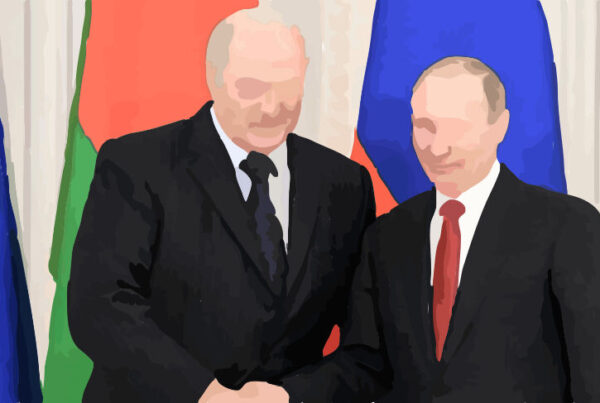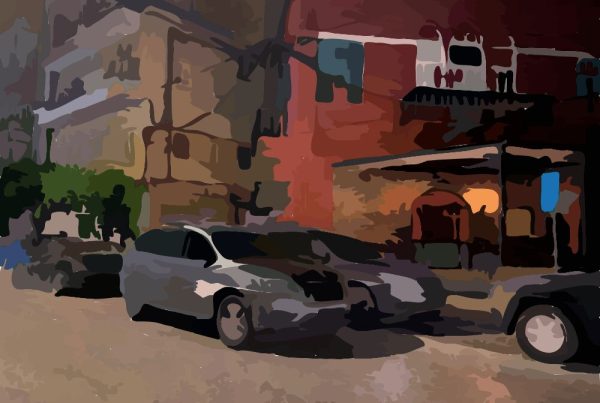Earlier this year, Turkish President Recep Tayyip Erdoğan’s power faltered. On March 31st, the people of Istanbul elected, by a narrow margin, a mayor from the Cumhuriyet Halk Partisi (CHP, Republican People’s Party). The word “Republican” in the name of the CHP has a very different connotation than in the United States: in fact, the CHP is the largest party of the secular, social-democratic opposition. This victory was unacceptable for Erdoğan, whose response was to repeal the outcome of the election. However, when the voters of the biggest city in Turkey went back to the ballot box on June 23rd, they once again elected the candidate from the opposition, this time by a very wide margin.
Despite harsh repression, during which thousands of people were arrested and fired, Erdoğan’s power faltered. The people’s dissatisfaction mainly derives from the deep recession the Turkish economy is going through, because of failed policies, widespread corruption, and the waste of huge sums of money on giant infrastructures useful only to the President to show off his gigantic ego.
How do you strengthen your power when it’s under scrutiny? The answer, according to Kadri Gürsel, is “by creating a wave of nationalist activism, with the short-term goal of preventing parties with ideas other than the political majority’s ones from forming.” The most efficient way to do was to start a war against the Kurdish in northern Syria, and it worked. The whole opposition, starting from the CHP, joined the feverish chorus of voices celebrating the bombings, as denounced by Arti Gerçek, a website managed by exile Turkish journalists living in Germany.
From Atatürk to Erdoğan
The Republic of Turkey was born in 1923 from the ashes of the Ottoman Empire, thanks to the revolution led by Mustafa Kemal Atatürk. His party (the CHP) was initially the only one allowed to exist, and only after World War II were other parties allowed to form. Democracy, however, never really followed: the army, leading several coups, always subdued the civilian powers. The more religious part of the population was heavily discriminated against, resulting in fear and resentment.
The rise of Erdoğan in the early 2000s was considered as a good sign, as he was the head of the Adalet ve Kalkinma Partisi (AKP, Party for Justice and Progress). The AKP presented itself as a moderate Islamic party which had as its goal the formation of a peaceful society guided by the vote of the citizens, rather than by the military. It promised to transform Turkey into a real democracy and to make it a member of the European Union, an idea that circulated back in the 60s. Maybe Erdoğan had been lying since the very start, maybe he changed through the years, and maybe Europe’s unkept promises caused the changes. What’s certain is how the path Turkey went down on differs completely from the one that was hoped for.
The Tsar and the Sultan
The country is formally a democracy but, in reality, the situation is very different. The government’s institutions look democratic from the outside but, internally, democratic policies are not in place. Erdoğan’s Turkey is an authoritarian and cynical regime. Lebanese journalist Anthony Samrani, one of the most influential analysts in Middle Eastern matters, explained last year how the Turkish president looks up to Vladimir Putin: “Just like his Russian colleague, the Turkish president takes advantage of elections to shut down any criticism directed towards the despotic nature of his power. The rules of democracy are apparently upheld, but their spirit is fundamentally curbed: there are no changes among the top members of the cabinet, there is little or no opposition, very few free media and almost no freedom to gather in protest.”
If Putin wants to go back to the time of the Tsars, Erdoğan sees himself as a new Sultan and hopes to bring back the majesty and splendour of the Ottoman Empire, albeit an Ottoman Empire warped by the lenses of nationalism and fundamentalism. The Ottomans were known for a certain tolerance and sexual freedom, whereas “Erdoganism” blames laicism as being the biggest threat to Islam, and considers it up to Turkey to be a bastion of the Islamic religion. Everything, starting from laws, society, culture, and education, is eyed with suspicion and considered as going against Islam, or as not being Islamist enough.

“6 different secretaries have reformed the school system 16 times in 15 years,” writes Nasuh Mahruki, “so that they could raise the Turkish youth in ignorance. We were all witnesses to how schools were transformed into religious institutions, how education was torn apart, and science made disappear. Prayer rooms were open even in kindergartens, with no one getting concerned about it. We didn’t intervene when, in school dormitories, religious confraternities systematically abused our kids for months.”
Nationalism and homophobia
Just as in Putin’s Russia, the LGBTQIA community has become the perfect scapegoat in Erdoğan’s Turkey. And, once again, just like in Russia, we can understand more about how the Turkish authoritarian system works by analyzing the President’s perspective on these minorities. However, we have to go back in time first.
Mustafa Kemal Atatürk based his revolution on a concept of modernization which was strongly hostile to sexual diversity: the Ottomans’ lax ideas regarding people’s sexuality was seen as an archaic symbol of moral decay. Fluid sexual desires and identities, says Kaya Genç, became a problem during the country’s westernization. The ideal that was being followed, because of the Turkish military and its contacts with the German one, was one of a masculine, muscular, and deeply homophobic nationalism. The new Republic of Turkey didn’t criminalize homosexuality in 1923, but it sure wasn’t friendly towards it.
It might now sound like a paradox, but Erdoğan’s rise to power was initially seen as good news for the LGBTQIA community, as many activists appreciated both his promises of democracy and more specific statements he made. In 2002, for example, the future president declared: “Our laws must guarantee homosexual people’s rights and freedom.” Erdoğan became Prime Minister on March 14th, 2003, and, shortly after, Turkey’s first Pride Day took place in Istanbul. Ankara saw its first Pride Day in 2008, followed by Smirne and Adalia. It almost seemed like the new Prime Minister and the LGBTQIA pride movement were growing together.
Bans and censorship
At a superficial glance, we could keep tracing this parallel growth until 2014, when, on June 29th, Istanbul’s Pride Day saw a crowd of 100,000, a number that, within the Middle East, only Tel Aviv could draw. Shortly after, on August 28th, Erdoğan became President. Was that a double victory? No, it wasn’t: by then, Erdoğan’s perspective had transformed. He no longer spoke of recognizing the rights of homosexual people, defining instead homosexuality as a “sexual preference” that is incompatible with “Islamic culture.”
Starting from 2015, and each year after that, Pride Days have been banned in Turkey Pride Days have been banned in Turkey with the excuse that they could provoke hostile reactions by part of the population, turning them into a threat to public safety. In reality, hostility was only ever shown by the police, which repressed LGBTQIA rallies with batons, fire hydrants, tear gas, rubber bullets and unjustified arrests. This year, in April, the regional administrative court of Ankara declared such bans as illegal because of the “excessively restricting fundamental rights and freedom”. This ruling serves as a beacon of hope, but we shouldn’t overestimate it: no later than the following August authorities banned Istanbul’s “Queer Olympics”.

Bans have often affected culture and entertainment, such as movie festivals. Even big names of international music have fallen victims to censorship: last year, the Turkish Supreme Council for Radio and Television fined a TV channel for having aired the video clip of the song “Secrets,” by American singer Pink, which was deemed guilty of showing “erotic dance figures of a homosexual nature”. A few months before that, the Turkish public access TV boycotted Eurovision, because of the presence of Drag Queen artist Conchita Wurst: “As a public broadcaster we cannot broadcast live at 9 pm, when children are watching, an Austrian with a beard and a skirt, who claims not to have a gender and says ‘I am a man and a woman at the same time.’”
Fired for being gay
One of Erdoganism’s preferred methods to go after sexual minorities and political enemies is by firing people. A much-scrutinized instance was that of three municipal workers in the district of Kâğıthane (part of the city of Istanbul), who were fired for being gay. Their homosexual relationships, according to authorities, went against the rules of “morals and good faith” listed in their contract. Luckily, the courts of law intervened once again, thanks to a waste collector who denounced what had happened, and, in January, judges ruled that nobody can be fired because of their sexual orientation.
Unfortunately, however, the authorities showed once again a complete lack of respect towards the principles established by the courts of law: in March, the news spread of how a policeman in the city of Van, in the easternmost part of Turkey, had been suspended after he was discovered having a boyfriend. The disciplinary committee argued that “a civil servant can be suspended if he or she is in an unnatural relationship with another person.” The conclusion one can draw by analyzing Erdoğan’s policies concerning sexual minorities is the following: his power is repressive and wants to impose its presence over education, culture, and the private life of people with totalitarian aspirations, although it has been trying (so far) to maintain the appearance of a democracy in which people can vote and are protected by court rulings.
Erdoğan and the crisis of Islam
How long will Erdoğan’s reign be able to last? The consensus around him and his poll numbers both went down, but he was very good at pushing back against the hopes of the opposition (too bad that meant bombings and killings in northern Syria). He lost several allies but gained other powerful ones like Putin, and he blackmails European governments by threatening to allow Syrian refugees free passage towards European countries. European xenophobia is a great safeguard for Turkey’s power. Erdoğan’s power may falter, but it’s hard to understand if it’s in danger of collapsing or if it’s getting stronger.
However, one of Erdoğan’s policies’ many paradoxes is how, despite being presented as necessary for the good of Islam, they caused the number of Turkish atheists to triple and the religious involvement of believers to diminish. The data contradicts Erdoğan: the Sultan-President is causing a deep crisis within Turkish Islam, at least within its more politicized and integralist version. Cultural anthropologist Ayşe Çavdar foresees a Turkish ’68, during which the younger generations, tired of conservative government institutions, will impose inclusive, secular values, replacing the authoritarianism proper of the Kemalist and Erdoganist watered-down versions of secularism.
Will Turkey become a place where everyone can live freely? Will Turkey welcome Turkish and Kurdish people, Muslims and atheists, heterosexual and LGBTQIA people? As of today, these questions are impossible to answer, but international public opinion has to acknowledge its duty and responsibility in the matter.
Pier Cesare Notaro
translation by Tomas Mascali
©2019 Il Grande Colibrì
images: elaboration by geralt (CC0) / by President of Russia (CC0) / by Lubunya (CC BY-SA 3.0)




